Open Meeting Law by Ryan Russell

Ryan Russell
“A popular Government without popular information or the means of acquiring it, is but a Prologue to a Farce or a Tragedy or perhaps both. Knowledge will forever govern ignorance, and a people who mean to be their own Governors, must arm themselves with the power knowledge gives”. -James Madison.
That historical concept informs the Open Meeting Law (“OML”), which is founded, in my opinion, in the notion that all public bodies exist to aid in the conduct of the people’s business. At its core, the OML is designed to ensure transparency in the actions and deliberations of public bodies. It further is designed to ensure that the meetings, actions, and deliberations of public bodies are not only conducted openly and notoriously, but pursuant to properly posted agendas which include a clear and complete statement of the topics to be considered, a list of items upon which action may be taken, and multiple periods devoted to public comment. The clarity of the notice and agenda must provide clear notice of the topics to be discussed at public meetings, thereby enabling the public to attend when a topic of interest is on the agenda.
A “meeting” under the OML is a gathering of a quorum of a public body where information is acquired, discussed, or decisions are made regarding that information within its jurisdiction. According to N.R.S. 241.015, a meeting does not include any gathering or series of gatherings of members of a public body if the members do not deliberate toward a decision or take action on any matter over which the public body has supervision, control, jurisdiction or advisory power. At the core of any meeting of a public body is deliberation and action. Deliberate means collectively to examine, weigh and reflect upon the reasons for or against an action. It includes without limitation the collective discussion, acquisition and exchange of facts preliminary to the ultimate decision. Action means a decision, promise or commitment. Action occurs when a vote is taken by a majority of all of the members of a public body.
Central to a proper meeting of a public body is public comment. A period devoted to comments by the general public, if any, must be taken at the beginning of a meeting of a public body before any items on which action may be taken are heard, and again before adjournment, or after each item on the agenda on which action may be taken is discussed by the public body, but before the public body takes action. Regardless of either of the above options, the public body must allow the general public to comment on any matter that is not specifically included on the agenda as an action item before adjournment of the meeting, but no action may be taken on an un-agendized item. It is always important to understand that a public body will never get in trouble for taking too much public comment. That is because public comment is designed to allow public bodies to hear the voices of the people, to discover issues of concern, to learn of dissenting views, to hear positive views, and to determine future agenda topics. Public comment is not a platform for matters outside of the jurisdiction or control of the public body. So public bodies are able to put reasonable restrictions on public comment, such as a reasonable time limit, and a limitation to matters within the authority of the public body. A public body is also permitted to prohibit public comment if the content is willfully disruptive of the meeting by being irrelevant, repetitious, offensive, inflammatory, irrational, or if it amounts to a personal attack or acts as an interference with the rights of other speakers.
In short, the OML is a tool to ensure that public bodies, in service of the public, conduct their meetings openly and with proper notice, and with multiple periods of public comment. At Allison MacKenzie, we represent myriad public bodies and strive to assist each one in steadfast compliance with the OML.



